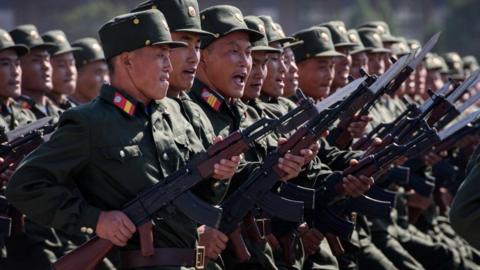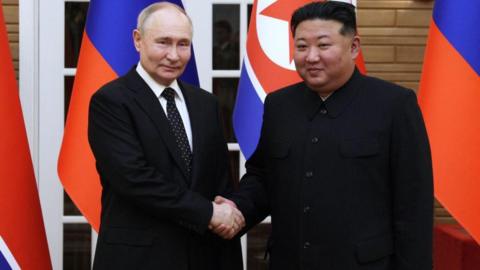These developments, coming at a time when tensions within the Korean peninsula have spiralled to their highest in years, are worrying Seoul.
In October, the North blew up sections of two roads that connected it to South Korea, days after accusing Seoul of flying drones into the North’s capital Pyongyang.
That came after the two countries engaged in a tit-for-tat balloon campaign, flying thousands of trash and propaganda balloons towards each other’s territories. The Koreas have also suspended a pact aimed at lowering military tensions between them, shortly after North Korea said that the South was now “enemy number one”.
So it makes sense that South Korea would be uneasy about the North acquiring new military prowess amid these tensions. After all, troops in South Korea have also not fought in another major conflict since the Korean War.
According to Mr Madden and Mr Cancian, it is thought the North Korean troops are being employed around the embattled Kursk border region, which Moscow has been trying to recapture from Ukraine.
The South fears that “its adversary could boast more hostile capabilities” as a result of the experience its soldiers would get on the battlefield, says Lt-Gen (retd) Chun.
While South Korea has long accused the North of supplying weapons to Russia, it says the current situation has gone beyond the transfer of military materials.
It has also expressed “grave concern” over a pact between Pyongyang and Moscow, which pledges that the two counties will help each other in the event of “aggression” against either country.
South Korean President Yoon Suk Yeol has reiterated - at least three times in the past two months - that the South would consider aiding Ukraine “for defensive purposes”. If this happens, it would mark a shift from the South’s longstanding policy of not supply weapons to countries engaged in active conflict.

